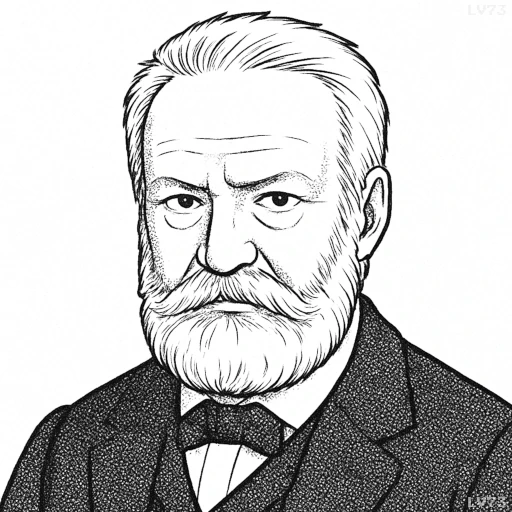“The man who does not know other languages, unless he is a man of genius, necessarily has deficiencies in his ideas.”

- February 26, 1802 – May 22, 1885
- Born in France
- Author, poet, playwright
table of contents
Quote
“The man who does not know other languages, unless he is a man of genius, necessarily has deficiencies in his ideas.”
Explanation
In this quote, Victor Hugo argues that learning other languages is essential for broadening one’s understanding and enhancing one’s ideas. He acknowledges that a person who is not familiar with languages other than their own will be limited in the scope and depth of their thinking, because language shapes how we perceive and interpret the world. Knowledge of multiple languages opens up access to a wider array of ideas, cultures, and philosophies, enabling a more comprehensive and nuanced understanding of life. Only someone of extraordinary genius, in Hugo’s view, would be able to compensate for the limitations imposed by a single language, as genius allows for an exceptional capacity to think outside these boundaries.
Hugo’s words reflect his belief in the importance of linguistic and cultural diversity for intellectual and personal growth. He suggests that a well-rounded thinker or scholar must not only be well-read but also multilingual, as knowing different languages allows for deeper connections with other cultures, ideas, and perspectives.
In modern terms, this quote emphasizes the value of language learning as a means to enrich one’s thinking and expand horizons. It underscores how multilingualism can provide access to a wider range of ideas, fostering a more global and inclusive mindset. The quote encourages us to view language as more than just a tool for communication, but as a gateway to greater intellectual depth and understanding.
Would you like to share your impressions or related stories about this quote in the comments section?

